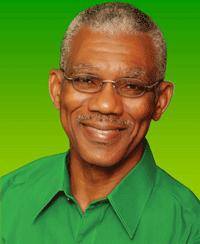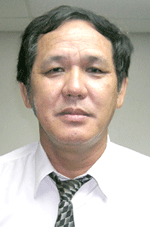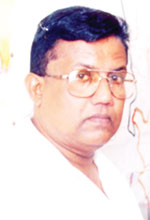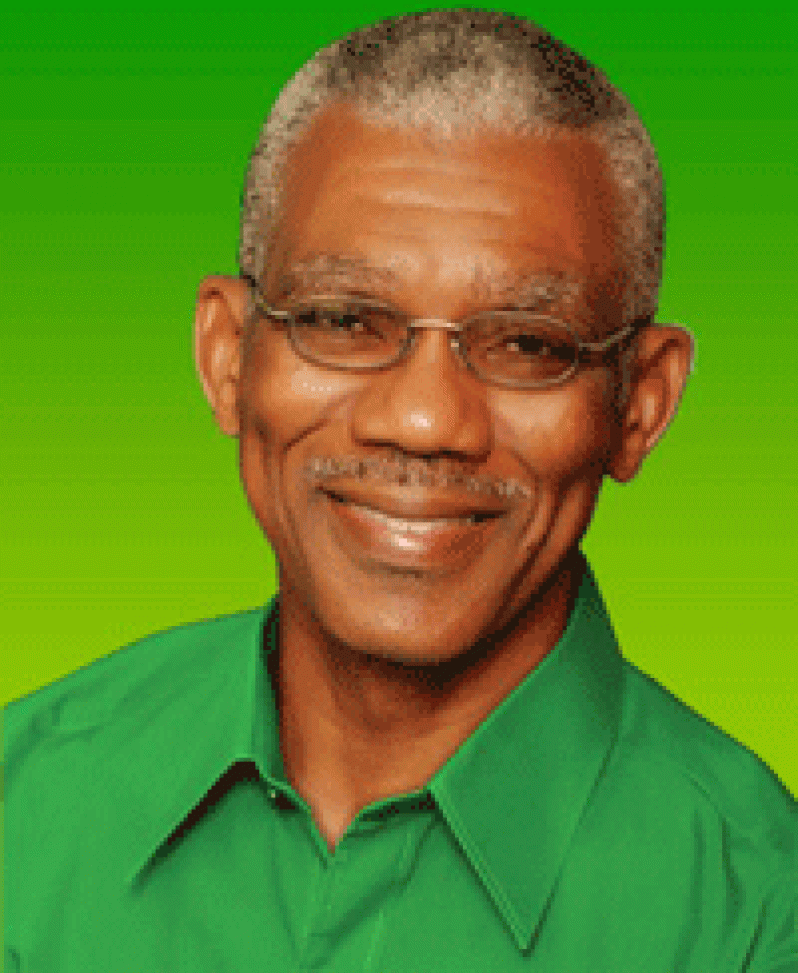GUYANA’S opposition parliamentary leader, David Granger, who is also the current chairman of the main opposition, APNU (A Partnership for National Unity), does not like to be branded as being ‘opposed’ to either acting Chancellor of the Judiciary, Carl Singh, or acting Chief Justice, Ian Chang.
 Yet, to judge from most recent reports on his ongoing public posturing, Mr Granger continues to disagree with efforts by Executive President, Donald Ramotar, for the much overdue confirmations of these two outstanding top officials of Guyana’s judicial system, having already acted in the respective positions for some eight years.
Yet, to judge from most recent reports on his ongoing public posturing, Mr Granger continues to disagree with efforts by Executive President, Donald Ramotar, for the much overdue confirmations of these two outstanding top officials of Guyana’s judicial system, having already acted in the respective positions for some eight years.
Yes, for EIGTH years, while Granger, former Brigadier of the Guyana Defence Force (GDF) was still on the periphery of the decision-making wings of the People’s National Congress (PNC), and after managing to succeed the then retiring Robert Corbin as party leader with merely a majority of fifteen votes!
Where within our Caribbean Community, but in the leadership structure of Guyana’s PNC, are politicians like David Granger who, having grown up and comfortably lived with the dreadful doctrine of “party paramountcy” over ALL major institutions–including the Judiciary—would now demand more than “agreement” prior to confirmation on appointments of the Chancellor and Chief Justice.
That is not enough, for Mr Granger, known, varyingly, for many years by this columnist. After a recent meeting with the President, he has come forward with two demands, as reported in the media.
The demands would normally have provoked in any other CARICOM state, at least a brief appropriate response from a functioning Bar Association, or independent human rights body. First, the APNU leader has requested that the government advertise the acting posts of Chancellor and Chief Justice in “the Eastern Caribbean”.
First, the APNU leader has requested that the government advertise the acting posts of Chancellor and Chief Justice in “the Eastern Caribbean”.
There is no known precedent in our region to advertise in the regional media such positions—AFTER eight years of acting appointments and NO known documented claims against either the COMPETENCE compete or INTEGRITY of current respective office holders.
In any case, why just the “Eastern Caribbean” and avoiding, for example, Jamaica and Trinidad and Tobago—where independence of the judiciary is held to be sacrosanct and where bar associations are quite alive with meaningful interventions to help public understanding–in contrast to the pitiful situation that prevails in Guyana with a ‘bar association’.
Astonishing precedent
Secondly, and even more astounding in its UNPRECEDENTED constitutional demand, is the APNU leader’s call that not only should there be necessary agreement between him and the President on confirmation of appointments for the acting Chancellor and Chief Justice.
Rather, that he (Granger) must be provided with the relevant information on HOW President Ramotar came to that conclusion. To quote his exact words, as reported by the Caribbean Media Corporation (CMC), Granger said: “I think I have to have an input into how the President arrives at the decisions he is bringing to me…”
This may not be an example of a little learning that can make some mad. But it does seem to reflect a burning obsession by APNU—aided by the Aliance for Change (AFC)–to continue manipulating a one-seat parliamentary majority to make a mockery of multi-party democratic governance.
Evidently bent on misusing this one-seat majority in the 65-member parliament—with often knee-jerk responses from the AFC—the APNU’s Granger is demanding from Guyana’s democratically-elected Head of State to explain the process by which he came to his decision to have Chancellor Singh and Chief Justice Chang CONFIRMED in those respective positions.
Has something gone wrong, so quickly, with the thinking of the APNU’s current ‘bossman’?
Major politicking centres
A question of relevance is whether this display of APNU’S arrogance is the latest manifestation of an opposition alliance to seize control—WITHOUT a defined electoral mandate—of the three major centres of democratic governance, namely, the Guyana Elections Commission (GECOM); Parliament and the Judiciary?
The opposition has been quite successful with parliamentary bacchanal politics—particularly with slash-and-burn approaches on budgetary estimates of expenditures within the past two years.
Now political guns are seemingly being simultaneously aimed at the judiciary—via unprecedented demands for confirmation of the Chancellor and Chief Justice—as well as GECOM.
With respect to the latter, it’s the latest quest for removal of its very experienced Chief Elections Officer (CEO), Gocool Boodhoo, amid claims in the local media that relevant pressures are also being exercised on the equally very experienced and respected Chairman, Dr Steve Surujbally, to see the back of his CEO.
There can be no serious denials, based on narrow political considerations, of the opposition’s desire to have Mr Boodhoo replaced before either new local government or national elections.
And should they succeed, will they then also seek the removal of the Commission’s Chairman? I doubt that Dr Surujbally would countenance ANY such political manoeuvre to sacrifice the current CEO amid growing signals and talk of a likely snap national poll.



.jpg)








